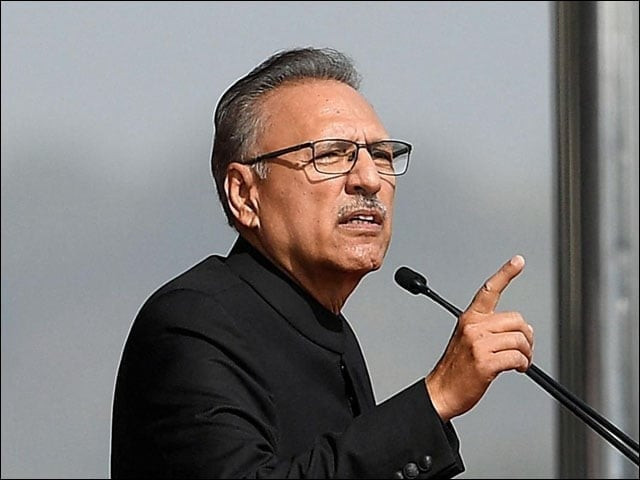Arif Alvi secures 20-day protective bail from SHC in protest case
SHC grants former president protective bail in three cases, directs him to submit a Rs50,000 bond

The Sindh High Court (SHC) on Wednesday granted former president and PTI leader Arif Alvi a 20-day protective bail after he petitioned the court, citing multiple cases filed against him for his participation in a November 24 protest, Express News reported.
SHC has granted protective bail to the former president, directing him to submit a bond of Rs50,000 while approving his bail in three different cases.
Justices Salahuddin Panhwar and Adnanul Karim Memon of the SHC further stated that the case would be referred to a constitutional bench for further hearing.
At the outset of the hearing, Alvi’s lawyer argued that despite participating in peaceful protests, multiple cases had been registered against him in different cities.
Cases have been filed against the former president in places like Mianwali, Taxila, and Rawalpindi, with the lawyer claiming that these actions were politically motivated to exert pressure.
He requested the court to grant protective bail for 20 days, stop the Sindh police from arresting Alvi, and prevent his name from being added to any unknown FIRs.
Contempt of court petition against SBCDA officials
In a separate matter, Dr Arif Alvi’s wife has filed a contempt of court petition against the Sindh government and the Sindh Building Control Authority (SBCDA) officials where the petition claims that the SBCDA failed to comply with a court order regarding the de-sealing of Alvi’s clinic.
The SBCDA had sealed the clinic located in PECHS on October 3. However, the Sindh High Court had declared the sealing order void on November 22 and instructed the clinic to be de-sealed.
Despite the court’s ruling, the clinic has yet to be re-opened. The petitioner stated that SBCDA officers had been notified of the court's order through various means, but they willfully ignored the directive. She has requested the court to take contempt of court action against the officials involved.
The contempt petition names SBCDA Director General Rashid Solangi, Director East Syed Asif Rizvi, and Deputy Director Shakeel Ahmed as respondents.



















COMMENTS
Comments are moderated and generally will be posted if they are on-topic and not abusive.
For more information, please see our Comments FAQ